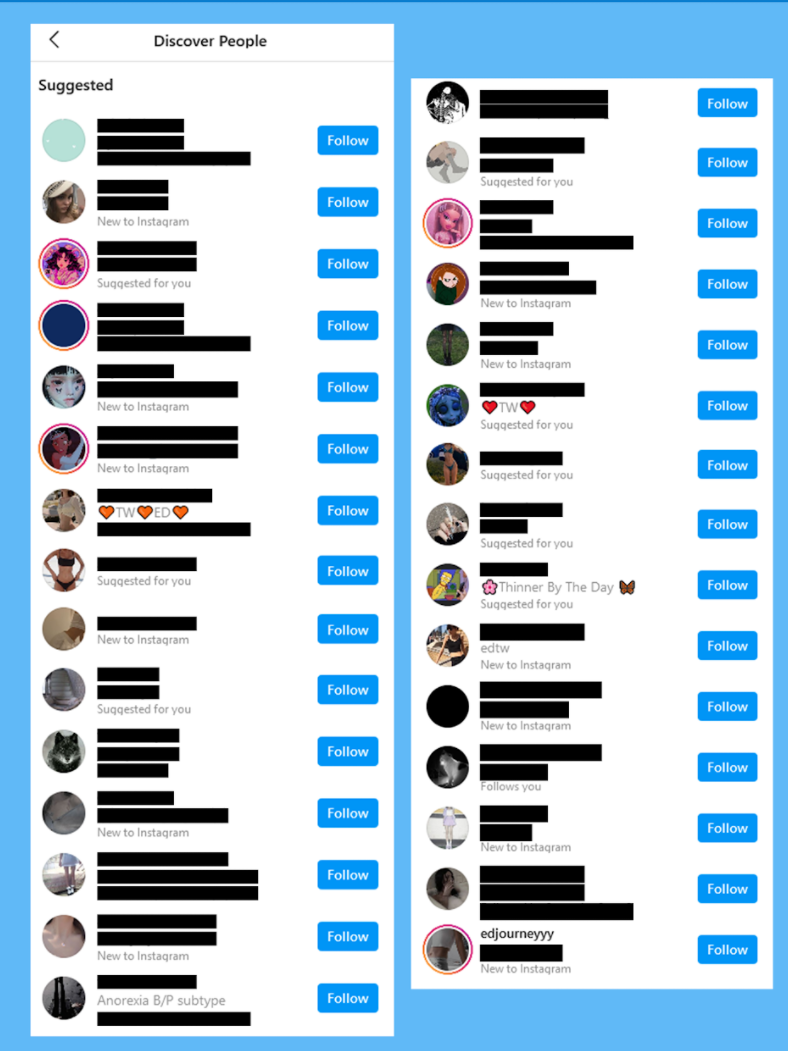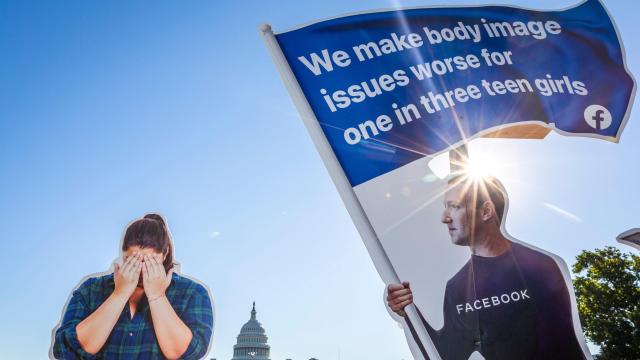A Senate hearing spurred on by a company whistleblower commenced Thursday with a barrage of allegations against Facebook, the company now implicated in burying internal research portraying its product Instagram as a blight on the mental health of teen users.
Sen. Richard Blumenthal, head of the Senate’s consumer protection subcommittee, accused Facebook of lying to Senate officials and selectively publishing documents to deceive the public about the conclusions reached by the company’s own experts. “We now know that Facebook routinely puts profits ahead of kids’ online safety. We know it chooses the growth of its products ahead of the wellbeing of our children. And we now know that it is indefensibly delinquent in acting to protect them,” he said.
Revealed by the Wall Street Journal this month, research quietly conducted at Facebook’s behest into Instagram’s effects on young teens offered a disturbing take on the mental health risks associated with its photo-sharing platform. “Teens blame Instagram for increases in the rate of anxiety and depression,” Facebook’s researchers wrote in one document, saying the reaction was both “unprompted and consistent across all groups.”
The Journal further described Facebook’s efforts to bury its own findings, even as it hunted for new ways to ingratiate its brand with children in preadolescence. Facebook was informed repeatedly of the harms posed by Instagram on, chiefly, young girls — many of whom linked suicidal thoughts and eating disorders to their experiences on the app. Yet documents show that Facebook had, in the face of those findings, gone on to characterise children as young as 10 as a “valuable” but “untapped” resource pivotal to the company’s “growth.”
“We are here today because Facebook has shown us, once again, that it is incapable of holding itself accountable,” said Blumenthal, who said a Facebook whistleblower had approached his office this month offering “deep insight into Facebook’s relentless campaign to recruit and exploit young users.” The whistleblower is now slated to testify before his subcommittee on Tuesday.
On the eve of Thursday’s hearing, Facebook preemptively released two reports aimed at downplaying the findings being highlighted in the press. It went as far as to attack its own experts, casting their methods as scientifically flawed if not borderline incompetent. It referred to the findings as “preliminary” and “exploratory” as it strived to emphasise the limitations of its own work. Its researchers did not, for example, rely on any “clinical criterion” while repeatedly applying the term “mental health” — which should not, the company said, be misconstrued for a “clinical, formal or academic definition.”
Blumenthal, a Democrat of Connecticut, took a bat to Facebook over the preemptive release, describing it as a cherry-picked analysis. “We have those two reports among the documents that the whistleblower provided,” he said. “There are numerous other extensive and sophisticated reports that Facebook has not disclosed.”
“The fact of the matter is,” he went on, “Facebook has concealed research, studies, experts that show the harm that has been caused to children on its site, how it knew about that harm, and how it concealed it, continually.”
Blumenthal added that both he and Sen. Marsha Blackburn, the committee’s ranking member and a Republican of Tennessee, had written to CEO Mark Zuckerberg in August, asking whether Facebook had ever heard of any negative effects, such as suicidal thoughts, on children’s and teen’s mental health. Facebook response, he said, was that it was “not aware of a consensus among studies or experts about how much screen time is too much.”
“That response,” he said, “was simply untrue.”
Blumenthal revealed that his office had conducted its own experiment, creating a fake Instagram account that pretended to be a 13-year-old girl. The account was made to follow others that were “easy to find” and associated with “extreme dieting.” Instagram, within a day, recommended the “13-year-old” follow a slew of other accounts promoting “self-injury and eating disorders,” he said.

A poster board displayed during the hearing showed an array of accounts Instagram had recommended to follow. Most of the names are blacked out, but a few display bios hinting at the type of content within. One reads, for instance, “Thinner By The Day,” while another is labelled “Anorexia B/P subtype,” a reference to the compulsive “binging and purging” behaviour clinically associated with Bulimia. Another account is labelled “EDTW,” an abbreviation meant to warn users that its content is focused on eating disorders.
“Facebook has taken Big Tobacco’s playbook,” said Blumenthal. “It has hidden its own research on addiction and the toxic effects of its products, it has attempted to deceive the public and us in Congress about what it knows, and it has weaponised childhood vulnerabilities against children themselves.”
